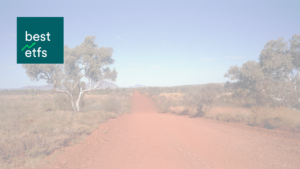Commodities ETFs have experienced exponential growth in popularity over the last 12 months and the BetaShares Crude Oil Index ETF (ASX: OOO) has received a lot of attention. So, how does this ETF work?
Commodities ETFs
In the 12 months to 30th June 2020, the total market cap of ASX-listed commodities ETFs grew 168.2%, making it the fastest-growing type of ETF. These commodities ETFs cover things like gold, silver, platinum and oil.
Oil, in particular, has gained attention this year as we saw negative oil prices for the first time in history. The volatility of this asset class has made it a big focus for traders and financial media.
So, how does an oil price turn negative?
When you hear that oil prices are negative, what this really refers to is the price of oil futures. Futures are a type of financial product regularly used in commodities markets. It is essentially a contract which determines a future price and date at which two parties will transact. These contracts are often used for hedging but can also be used to speculate or leverage a trade.
The futures price of oil is normally higher than the spot (current) price because it considers both the spot price and the cost of storing the oil until the settlement date of the contract. However, in certain conditions futures prices may be lower than the spot price and can even turn negative.
For this to occur, demand for oil needs to fall, supply needs to exceed demand, and storage capacity for the oil needs to be limited. These are the conditions that caused oil futures to turn negative in April this year.
What is the OOO ETF?
The OOO ETF aims to track the performance of West Texas Intermediate (WTI) crude oil futures which are traded on the New York Mercantile Exchange (NYMEX). It is important to realize that this ETF tracks futures prices, not the spot price of oil, and the example above should make it clear that these prices can be quite different.
Oil is priced in US dollars, so the OOO ETF also hedges its USD exposure back to AUD in order to reduce currency risk.
Performance has been very volatile in the past, with the ETF down almost 75% in the last 12 months, despite a 33% rise in May. Based on the complex financial instruments used and the potential volatility of this ETF, I would say it is a very speculative ETF and more suited to trading than a long term buy and hold strategy.
It may be interesting, but it is certainly not something I would recommend to a beginner investor.
[ls_content_block id=”695″ para=”paragraphs”]




